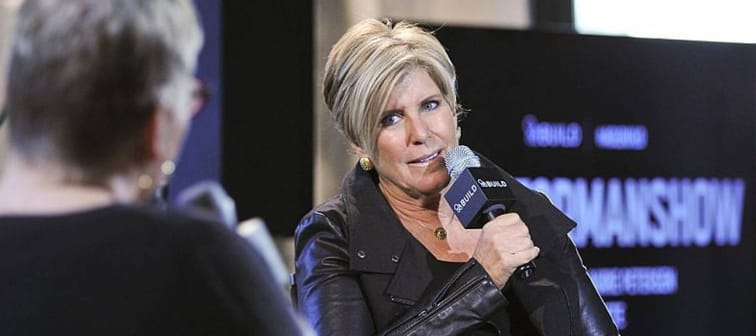Men are 'faking it' and women aren’t taking an active role
Research shows financial decision-making remains fairly gendered in many heterosexual relationships — even when women are the primary breadwinners.
Almost one third of high-earning women in heterosexual relationships earn more income than their spouse or partner, according to a 2024 report from Statistics Canada1.
However, women were less likely than men to consider themselves “financially knowledgeable” — 31% versus 43% — and were less likely to state that they “know enough about investments to choose the right ones that are suitable for their circumstances,” according to another report from Statistics Canada2. This doesn’t mean that women are less financially literate than men.
“Men are overconfident,” said Sonia Kang, Canada Research Chair in Identity, Diversity and Inclusion and associate professor at the University of Toronto, to Moneywise. She explained that women tend to have a more realistic assessment of risk.
Women investors actually outperform their male counterparts, opting for the buy-and-hold investing strategy instead of taking risks with frequent trading, according to a report from Fidelity3.
Orman during the interview with Wallace recounted stories of male clients who would pretend to understand when she would intentionally give them complicated financial strategies that didn’t make any sense.
“It's very important when a man says to a woman, ‘Oh, don't worry your pretty little head about it’ — you better worry your pretty little head about it,” she cautioned.
Here’s what she wants women — and men — to do.
Empower your investments with Qtrade
Discover Qtrade's award-winning platform and take control of your financial future. With user-friendly tools, expert insights, and low fees, investing has never been easier.
Start Trading TodayBe more financially prepared
When asked what financial illiteracy means to her, Orman provided several examples:
“I ask somebody, what’s in your retirement account? ... They don’t have a clue. They don’t have a will. They don’t have a trust. They don’t have a durable power of attorney for health care, or an advanced directive... They don’t understand.”
The former financial adviser and bestselling author encourages women — and men — to take the proper steps to reach their financial goals.
If you want to start building savings and wealth to last you into your retirement years, the first thing you’ll want to look at is picking the right investment vehicle.
For example, you can opt for either a TFSA or an RRSP if you don't have a retirement plan through an employer. If you’re earning less than what you will in retirement, a TFSA makes more sense, tax-wise, while if you're earning more, an RRSP is the way to go.
The EQ Bank TFSA Personal account currently offers 4.00% interest, tax-free, with no minimum account balances and no service fees (you just have to set up direct deposit with them). You can even pair your TFSA seamlessly with your regular EQ Personal Account or external bank account for easy one-time or recurring deposits.
Orman believes folks should invest at least 10% of their income for retirement, but 15% is the ideal goal.
If you have kids, it’s a great idea to save for their education through an RESP, which you could use to fund the costs of sending them to a private school or so that they can avoid taking on student loans once they go off to post-secondary.
Furthermore, don’t forget to financially prepare for what happens when you die or if you lose your decision-making faculties. This could include writing that will that you’ve been putting off for years so you can divvy up your assets among your loved ones. It’s also important to appoint a power of attorney to make important financial or health-related decisions on your behalf when you’re not able.
Sources:
1 Statistics Canada: Labour Force Survey, (Feb 2023)
2 Fidelity: 2021 Women and Investing Study (2021)
Trade Smarter, Today
Build your own investment portfolio with the CIBC Investor's Edge online and mobile trading platform and enjoy low commissions. Get 100 free trades and $200 or more cash back until March 31, 2025.






